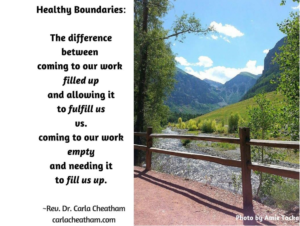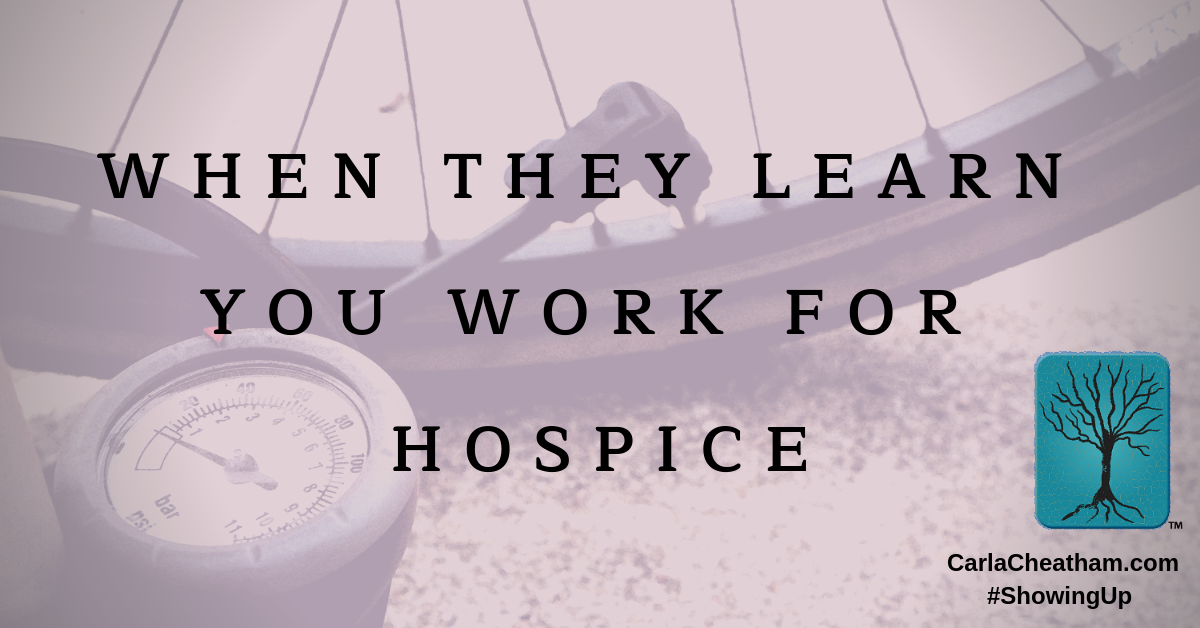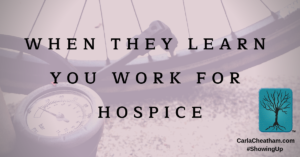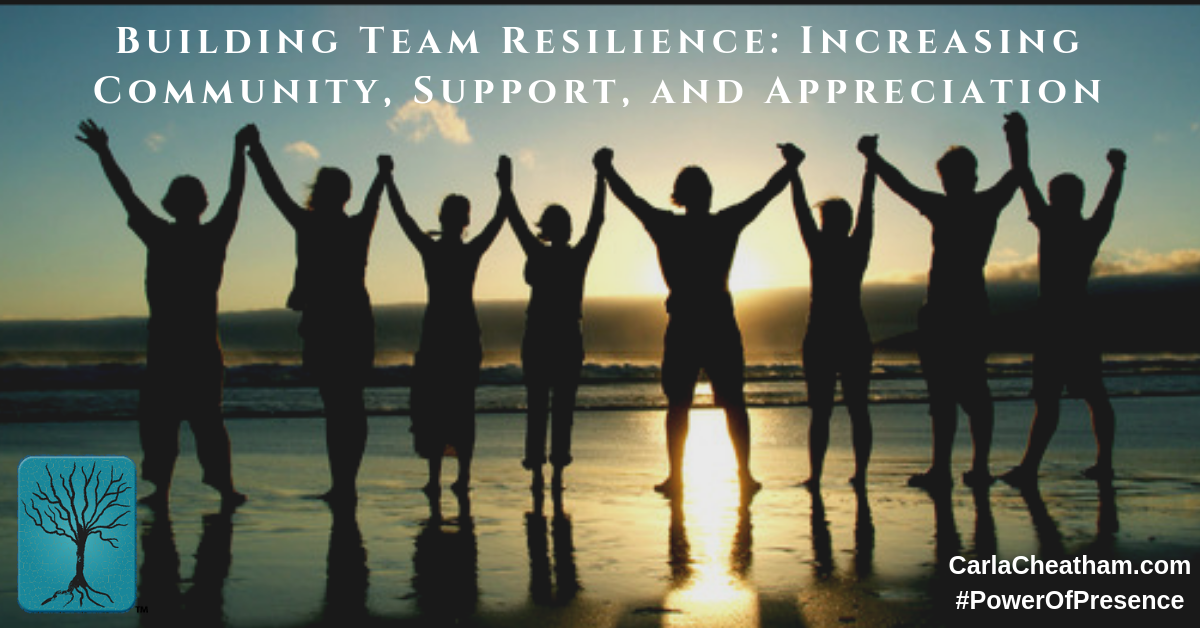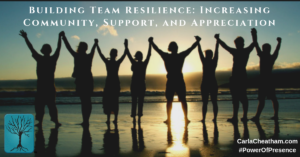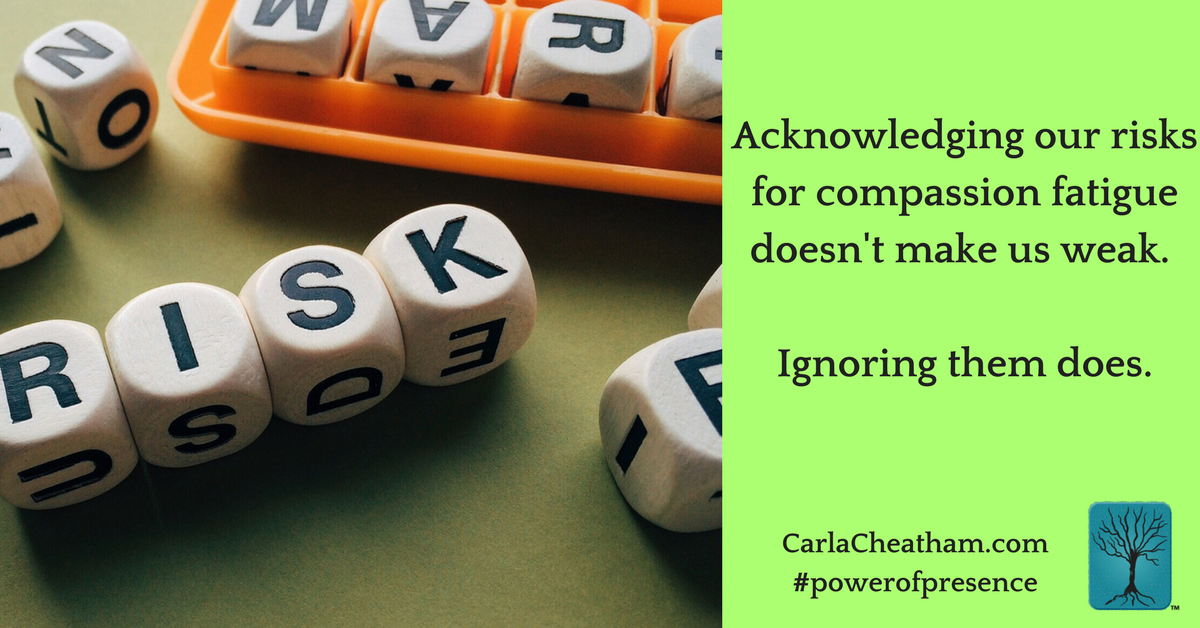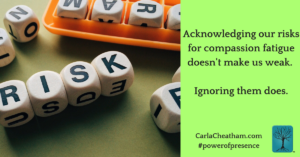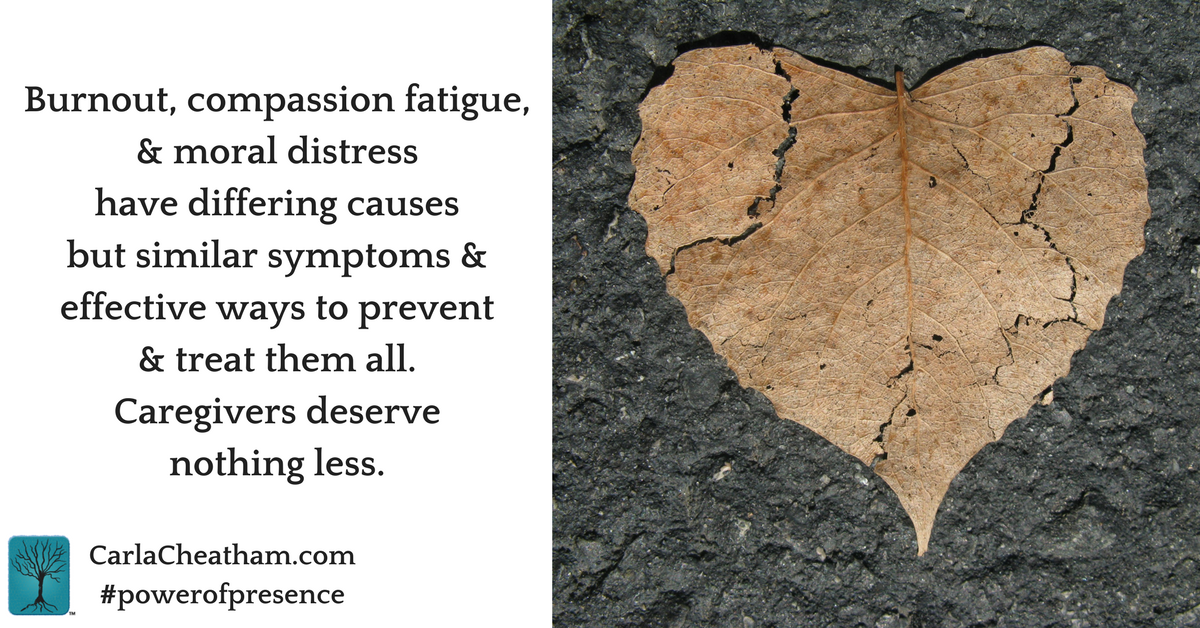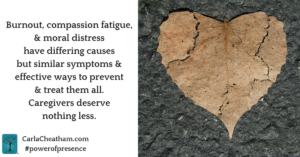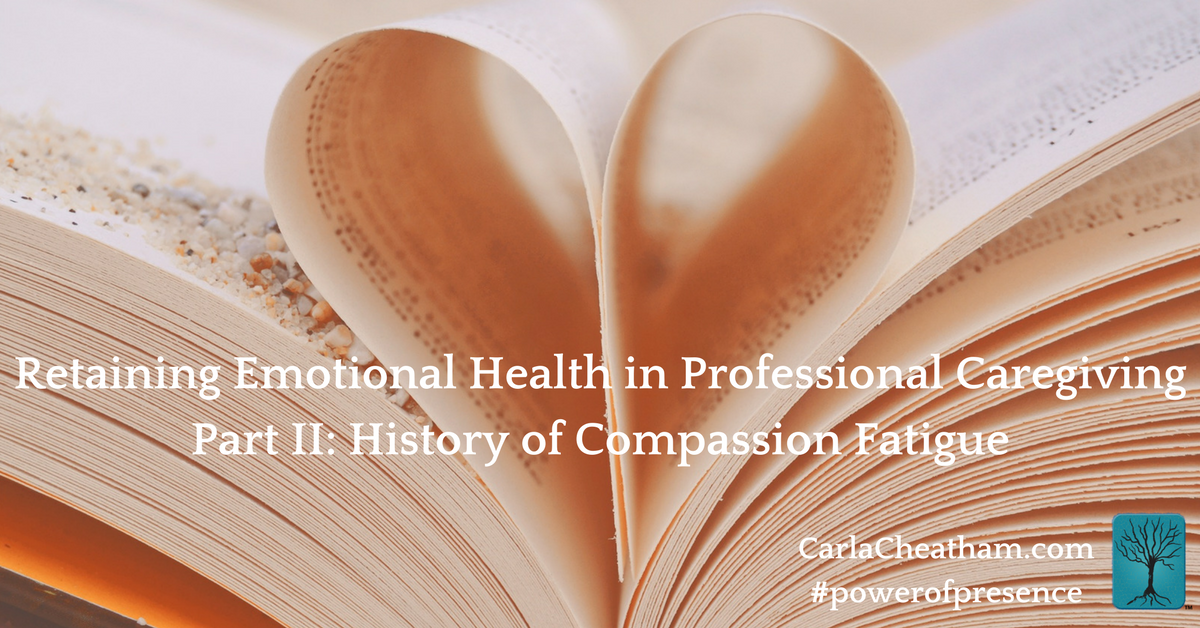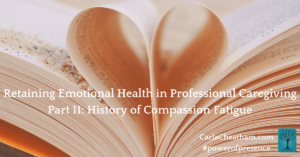
Resilience and Boundaries to Prevent Compassion Fatigue and Protect Team Health (a 4 minute read)
I teach boundaries to caring professionals and volunteers, based on both psychology, research, and my own human goof ups and successes over much of my adult life in social services and healthcare.
For me, the foundation of all healthy boundaries is this:
If I’m empty and need work to fill me up to make me feel okay, then I’ll need something from the interaction with patients and families, which means I’ll make it be about ME rather than what the patient and family need.
But if I’m already full, if I have my own life outside of work where I get acknowledgment and validation and warm fuzzies and love, then I won’t need it from patients and families.
When things don’t go the way I want them to, when symptoms can’t be completely managed. when people make choices that are hard for me to accept, when it isn’t all puppies and ponies, I won’t be as shaken because I don’t NEED things to go a certain way to feel okay.
So instead of giving up my life for this work, I need to first GET a life of my own and then bring the overflow of energy and peace and groundedness to those with whom I work, rather than draining myself to my dregs.
That’s the BEST thing I can do for patients and families, as well as my agency.
Now, I know bosses don’t always agree! We are far too often rewarded for over-functioning and bearing the stress of a system so the system won’t have to. For instance, if the census is too high and the staffing model is off and I work longer hours to compensate, I feel the stress, which means the system does not have to. If the system does not feel stress, it has no motivation to change and grow and become healthier.
We complain about it, but we also contribute by enabling the system, wearing our martyrdom like a badge of honor…to make us feel safe in our position, liked, and “okay”–See the cycle?
Certainly, setting limits and keeping healthy boundaries can be punished in small and large ways. It can feel scary to say, “No” to giving more than we have or more than seems reasonable and far beyond being a “team player”. We may even risk losing our jobs, so please don’t curse my name and ask to come live with me if you try this and it goes amuck!
But another key point of boundaries is this:
We must accept that we are responsible for our choices, even if we do not like our options.
Even if we fear not being able to find another job and not being able to pay our bills and going bankrupt and then being homeless under the bridge, we are still making a choice. Staying with a job that makes us miserable is still what we are choosing rather than facing the risk of life under the bridge.
And being at choice removes our status as a victim; it means we take responsibility for ourselves and let go of blaming everyone else, which feels a LOT better in the short term and is SO much more fun, but it also gives away our power.
We may be powerless to change circumstances or people, but we are not helpless to take action on our own behalf.
Living at choice rather than as a victim can immediately impact our sense of well-being, and greatly alter the lens through which we perceive ourselves and our situations.
So we take responsibility for filling ourselves up, and simply let our work fulfill us. We make good choices on our own behalf and model the good self-care we teach others. We focus on what we can change and how we can be part of a healthy and productive solution.
And we breathe, and we live and, little by little, we will change how healthcare is done by being the change we want to see.
Peace…
Carla
Based on the presentation, “Resilience and Boundaries to Prevent Compassion Fatigue and Protect Team Health” By Carla Cheatham
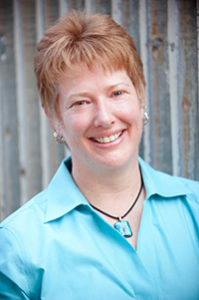 Rev. Carla Cheatham, MA, MDiv, PhD, TRT has served hospices as a chaplain and bereavement coordinator. She’s the Section Leader for the Spiritual Caregivers Section of the National Hospice and Palliative Care Organization, Chair of NHPCO’s Ethics Advisory Council, and an adjunct professor at the Seminary of the Southwest and an Affiliate Associate Professor at the University of Maryland. Through her Carla Cheatham Consulting Group, Carla provides training and consulting for professional caregivers nationwide. She is the author of Hospice Whispers: Stories of Life and its companion volume, Sharing Our Stories: A Hospice Whispers Grief Support Workbook. Her next book, On Showing Up with Suffering: Others’ and Our Own, is set to publish in 2019.
Rev. Carla Cheatham, MA, MDiv, PhD, TRT has served hospices as a chaplain and bereavement coordinator. She’s the Section Leader for the Spiritual Caregivers Section of the National Hospice and Palliative Care Organization, Chair of NHPCO’s Ethics Advisory Council, and an adjunct professor at the Seminary of the Southwest and an Affiliate Associate Professor at the University of Maryland. Through her Carla Cheatham Consulting Group, Carla provides training and consulting for professional caregivers nationwide. She is the author of Hospice Whispers: Stories of Life and its companion volume, Sharing Our Stories: A Hospice Whispers Grief Support Workbook. Her next book, On Showing Up with Suffering: Others’ and Our Own, is set to publish in 2019.

